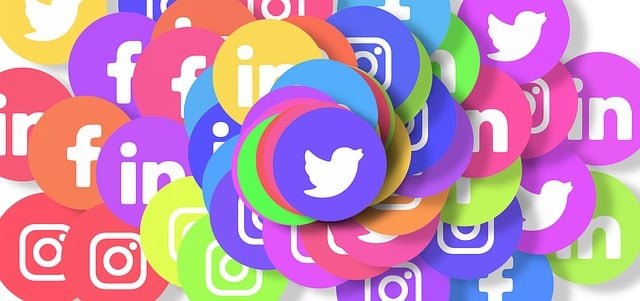Event marketing is a powerful tool for businesses to build brand awareness, engage with their audience, and drive sales. Whether it’s a small local gathering or a large international conference, successful event marketing requires strategic planning, creative execution, and thorough follow-up. In this guide, we’ll explore various strategies that can help ensure your event’s success.
Understanding Your Audience
One of the most critical aspects of event marketing is understanding your target audience. Knowing who you are trying to reach allows you to tailor your event to meet their needs and preferences. Start by creating detailed personas of your ideal attendees. Consider their demographics, interests, and pain points.
Research and Analysis
Conduct surveys, analyze social media insights, and look at past event data to gather information about your audience. This research will help you understand what type of content, activities, and experiences they find most engaging.
Tailored Messaging
Craft messages that resonate with your audience. Use their language, address their concerns, and highlight the benefits they will gain by attending your event. Personalized marketing can significantly increase engagement and attendance.
Setting Clear Goals and Objectives
Defining the Purpose of Your Event
The first step in setting clear goals and objectives is to define the purpose of your event. Understanding why you are hosting the event will guide all other decisions. Ask yourself what you hope to achieve.
Is it to increase brand awareness, generate leads, build customer relationships, launch a new product, or educate your audience? By clearly defining the purpose, you can create a focused strategy that aligns with your business goals.
Aligning Goals with Business Strategy
Your event goals should directly align with your overall business strategy. If your primary business goal is to enter a new market, your event might focus on attracting key industry influencers and potential customers from that region.
If you are launching a new product, your event could aim to generate media coverage and customer interest.
This alignment ensures that the event contributes to your broader business objectives, making it easier to measure success and demonstrate value to stakeholders.
Setting Specific and Measurable Goals
Vague goals like “increase brand awareness” are difficult to measure. Instead, set specific and measurable goals. For example, aim to “increase social media mentions by 30% during the month of the event” or “generate 200 new qualified leads.”
Specific goals provide clear targets to aim for and metrics to track. They help in planning and executing focused marketing activities and enable you to evaluate the event’s success with concrete data.
Creating Achievable and Realistic Objectives
While it is important to be ambitious, your objectives should also be achievable and realistic given your resources and constraints. Consider your budget, time frame, and available manpower.
Setting overly ambitious goals can lead to disappointment and stress, whereas realistic objectives motivate your team and set a positive tone for the event.
Evaluate past events, industry benchmarks, and internal capabilities to set goals that are challenging yet attainable.
Setting Time-Bound Goals
Time-bound goals add a sense of urgency and help in planning the timeline of your event marketing activities. For example, if you aim to increase email subscribers by 15%, specify that you want to achieve this within the three months leading up to the event.
Time-bound goals help in creating a detailed action plan with milestones and deadlines, ensuring that all tasks are completed in a timely manner.
Prioritizing Objectives
Not all goals and objectives will have the same level of importance. Prioritize your objectives based on their impact on your business and the resources required to achieve them. Focus on the goals that will deliver the highest return on investment.
For example, if generating leads is more critical to your business than media coverage, allocate more resources to activities that will attract and convert potential customers.
Monitoring and Adjusting Goals
Event marketing is a dynamic process, and it is important to monitor progress and adjust goals as needed. Use tools and analytics to track your performance against set objectives.
If you find that certain goals are not being met, analyze the reasons and adjust your strategy accordingly. This could involve reallocating resources, tweaking marketing messages, or changing tactics.
Regular monitoring ensures that you stay on track and make necessary adjustments to maximize success.
Communicating Goals to the Team
Clear communication of goals and objectives to your team is crucial for successful event execution. Ensure that everyone involved understands the goals, their roles in achieving them, and how their efforts contribute to the overall success of the event.
Regular updates and meetings can help keep everyone aligned and motivated. When the team is on the same page, it fosters collaboration and a shared sense of purpose.
Evaluating Success Post-Event
After the event, take the time to evaluate the success of your goals and objectives. Conduct a thorough review of the metrics and feedback collected. Determine which goals were met, which were exceeded, and which fell short.
This evaluation provides valuable insights for future events and helps in refining your event marketing strategy. Celebrate successes with your team and discuss areas for improvement to ensure continuous growth and development.
Creating a Compelling Event Concept
Your event needs a unique and compelling concept to stand out.
Think about the theme, format, and content of your event. A well-defined concept can attract attention and make your event more memorable.
Theme Development
Choose a theme that resonates with your audience and aligns with your brand. A strong theme can tie all aspects of your event together, from the marketing materials to the on-site decorations and activities.
Innovative Formats
Consider using innovative formats such as virtual events, hybrid events, or experiential marketing to engage your audience. These formats can provide unique experiences that traditional events may not offer.
Building an Effective Marketing Plan

Comprehensive Market Research
Before you can create an effective marketing plan, conducting comprehensive market research is essential. Understanding the competitive landscape, market trends, and customer preferences will inform your strategy.
Look into similar events in your industry to see what worked for them and identify any gaps you can fill.
Analyzing competitors’ strengths and weaknesses can help you craft a plan that stands out and resonates with your target audience.
Strategic Timing and Scheduling
Timing is crucial in event marketing. Choose a date that doesn’t conflict with other significant events in your industry or holidays that might distract your audience. Additionally, consider the timing of your promotional activities.
Start your marketing efforts well in advance to build anticipation and keep a steady flow of information leading up to the event.
Creating a detailed schedule for your marketing activities ensures consistency and keeps your audience engaged without overwhelming them.
Targeted Audience Segmentation
Segment your audience to tailor your marketing efforts more effectively. By dividing your potential attendees into specific groups based on demographics, interests, and behaviors, you can create personalized messages that resonate with each segment.
Personalized emails, social media posts, and advertisements are more likely to capture attention and drive engagement.
Understand the unique needs and preferences of each segment to craft compelling messages that encourage them to attend your event.
Multi-Channel Promotion
A multi-channel approach maximizes your reach and ensures that your message gets to your audience wherever they are. Combine online and offline marketing tactics to create a cohesive campaign.
Utilize email marketing to send invitations and updates directly to your audience. Leverage social media platforms to create buzz and engage with potential attendees. Consider traditional media such as press releases, radio spots, or print ads if they align with your audience’s preferences.
Integrating various channels creates multiple touchpoints, increasing the likelihood of capturing your audience’s attention.
Engaging Content Creation
Content is at the heart of your marketing plan. Create engaging, valuable content that draws your audience in and keeps them interested.
Blog posts, videos, infographics, and podcasts can highlight different aspects of your event, such as key speakers, sessions, and special activities. Share behind-the-scenes glimpses to build excitement and give a human touch to your promotions.
Stories about past events’ successes or testimonials from previous attendees can add credibility and entice new participants.
Influencer and Partner Collaboration
Collaborate with influencers and partners to amplify your reach. Influencers with a strong following in your industry can endorse your event, lending their credibility and helping you tap into their audience.
Identify influencers who align with your brand values and have a genuine connection with their followers. Partner with businesses or organizations that complement your event’s theme or objectives.
Joint promotions with partners can expand your reach and provide additional resources and expertise to enhance your event’s appeal.
Robust Email Marketing Campaigns
Email marketing remains a powerful tool for event promotion. Develop a series of targeted email campaigns to keep your audience informed and engaged. Start with a save-the-date email to announce the event, followed by detailed invitations highlighting key attractions.
Send regular updates with new announcements, such as additional speakers or agenda changes. Personalized emails can make your audience feel valued and more likely to attend.
Post-event follow-up emails thanking attendees and sharing highlights help maintain relationships and set the stage for future events.
Leveraging Analytics for Continuous Improvement
Utilize analytics to monitor the effectiveness of your marketing efforts and make data-driven decisions. Track metrics such as email open rates, social media engagement, and website traffic to gauge what’s working and what needs adjustment.
Use this data to refine your strategies and optimize your campaigns in real-time. Post-event analysis provides insights into the success of your marketing plan and highlights areas for improvement.
Continuous learning and adaptation ensure that each event builds on the success of the previous ones, leading to progressively better outcomes.
Engaging Attendees During the Event
The day of the event is your opportunity to shine. Make sure everything runs smoothly and your attendees have an exceptional experience.
Interactive Sessions
Incorporate interactive sessions such as Q&A panels, workshops, and live polls to keep your audience engaged. Encourage participation and make your attendees feel involved.
Networking Opportunities
Provide ample networking opportunities. Create spaces and activities where attendees can connect with each other and with your brand representatives.
Memorable Experiences
Ensure that your event offers memorable experiences. This could be through unique entertainment, exclusive product launches, or surprise giveaways. The goal is to create moments that attendees will remember and talk about long after the event.
Post-Event Follow-Up
The success of your event doesn’t end when the last attendee leaves. Post-event follow-up is crucial for maximizing the impact and measuring the success of your efforts.
Thank You Messages
Send personalized thank you messages to all attendees, speakers, and sponsors. Expressing gratitude helps build relationships and encourages future participation.
Post-Event Surveys
Gather feedback through post-event surveys. Ask attendees about their experiences, what they enjoyed, and where you can improve. This feedback is invaluable for planning future events.
Content Sharing
Share event highlights, photos, videos, and key takeaways on your website and social media platforms. This content can reach a broader audience and keep the event’s momentum going.
Analyzing Metrics
Review the metrics you set before the event to measure its success. Analyze attendance numbers, engagement levels, social media reach, and any other relevant data. This analysis will help you understand what worked well and what needs improvement.
Leveraging Technology for Event Success
In today’s digital age, technology plays a vital role in event marketing. From planning to execution to follow-up, the right tools can enhance every aspect of your event.
Event Management Software
Use event management software to streamline planning and execution. These tools can help with registration, ticketing, scheduling, and communication.
Social Media Tools
Leverage social media management tools to schedule posts, track engagement, and analyze performance. These tools can help you stay organized and efficient.
Live Streaming Platforms
For virtual and hybrid events, live streaming platforms are essential. Choose a reliable platform that offers high-quality streaming and interactive features like chat and polls.
Analytics Tools
Use analytics tools to track and measure the success of your event marketing efforts. These tools can provide insights into website traffic, social media engagement, email open rates, and more.
Collaborating with Influencers and Partners
Collaborations with influencers and partners can significantly boost your event’s reach and credibility. Choose collaborators who align with your brand and have a strong connection with your target audience.
Identifying Influencers
Look for influencers in your industry who have a genuine connection with your audience. Their endorsement can add authenticity and attract more attendees.
Building Partnerships
Form partnerships with other businesses or organizations that complement your event. These partnerships can expand your reach and provide additional resources and expertise.
Co-Promotions
Work with your influencers and partners on co-promotions. This could include joint social media campaigns, blog posts, or email newsletters. Co-promotions can help you reach a wider audience and create a buzz around your event.
Budgeting and Resource Allocation
Effective budgeting and resource allocation are critical for event success. Make sure you have a clear understanding of your budget and allocate resources wisely.
Detailed Budget Planning
Create a detailed budget that includes all potential expenses, such as venue costs, marketing materials, technology, and staffing. Be realistic and include a contingency fund for unexpected costs.
Resource Management
Ensure that you have the necessary resources to execute your event smoothly. This includes having the right team in place, adequate technology, and sufficient marketing materials.
Cost-Effective Strategies
Look for cost-effective strategies to maximize your budget. For example, leverage digital marketing to reduce costs or negotiate with vendors for better deals.
Sustainability in Event Marketing
Sustainability is becoming increasingly important in event marketing. Incorporating sustainable practices can enhance your brand’s reputation and appeal to eco-conscious attendees.
Eco-Friendly Materials
Use eco-friendly materials for your marketing collateral and event supplies. This includes recycled paper, biodegradable products, and reusable items.
Sustainable Practices
Implement sustainable practices such as reducing waste, using digital tickets, and encouraging public transportation or carpooling.
Green Partnerships
Partner with vendors and sponsors who prioritize sustainability. This can add credibility to your efforts and align with your audience’s values.
Engaging Your Audience Through Content
Creating engaging content is key to attracting and retaining your audience’s attention before, during, and after your event. Your content strategy should be designed to provide value and encourage interaction.
Pre-Event Content
Build anticipation by sharing teasers, speaker announcements, and behind-the-scenes content. Blog posts, videos, and social media updates can generate excitement and keep your audience informed.
During-Event Content
During the event, keep your audience engaged with live updates, interviews, and interactive sessions. Use live streaming to reach those who couldn’t attend in person. Encourage attendees to share their experiences on social media using a dedicated event hashtag.
Post-Event Content
After the event, continue the conversation by sharing highlights, key takeaways, and recordings of sessions. Post-event content can help maintain engagement and reinforce the value of your event.
Crafting Engaging Event Experiences
The experiences you provide at your event can leave a lasting impression on your attendees. Focus on creating memorable and interactive moments that align with your event’s goals and audience’s interests.
Interactive Activities
Incorporate interactive activities such as workshops, hands-on demonstrations, and Q&A sessions. These activities can make your event more engaging and allow attendees to participate actively.
Unique Experiences
Offer unique experiences that set your event apart. This could include exclusive product launches, VIP meet-and-greets, or unique entertainment. The goal is to create memorable moments that attendees will talk about long after the event.
Personalized Experiences
Personalize the experience for your attendees. Use data from registrations and surveys to tailor sessions, recommendations, and communications. Personalized experiences can increase satisfaction and engagement.
Leveraging Social Media for Maximum Impact

Social media is a powerful tool for promoting your event and engaging with your audience. A well-executed social media strategy can amplify your reach and drive attendance.
Building a Social Media Plan
Create a comprehensive social media plan that outlines your goals, target audience, and key messages. Determine the best platforms for your event and develop a content calendar to schedule posts leading up to the event.
Engaging with Your Audience
Engage with your audience by responding to comments, answering questions, and participating in conversations. Encourage attendees to share their experiences using a dedicated event hashtag.
Create Engaging Content Share a mix of content types, including images, videos, and live updates. Use storytelling to create emotional connections and highlight the value of attending your event.
Utilizing Social Media Ads
Consider using social media ads to reach a wider audience. Target ads based on demographics, interests, and behaviors to ensure they reach the right people.
Measuring Success and Evaluating ROI
Measuring the success of your event and evaluating the return on investment (ROI) is crucial for understanding its impact and planning future events.
Defining Key Metrics
Identify the key metrics that align with your event goals. These could include attendance numbers, engagement levels, social media reach, lead generation, and sales.
Collecting Data
Use tools such as surveys, social media analytics, and event management software to collect data. Track metrics throughout the event lifecycle to get a comprehensive view of its performance.
Analyzing Results
Analyze the data to understand what worked well and what didn’t. Look for patterns and insights that can inform your future event strategies.
Reporting and Feedback
Create a detailed report that summarizes the event’s performance and provides recommendations for improvement. Share this report with stakeholders and gather their feedback.
Building Long-Term Relationships
Successful event marketing is not just about one-off events; it’s about building long-term relationships with your audience.
Nurturing Leads
Follow up with leads generated from your event. Use email marketing and personalized communications to nurture these leads and move them through your sales funnel.
Engaging with Attendees
Keep engaging with your attendees even after the event. Share valuable content, invite them to future events, and encourage them to join your community.
Creating a Community
Build a community around your events. Use social media groups, forums, and regular meetups to keep the conversation going and foster connections among your audience.
Continuous Improvement

The key to successful event marketing is continuous improvement. Learn from each event and apply those lessons to make your future events even better.
Regularly gather feedback from attendees, speakers, and partners. Use this feedback to identify areas for improvement and make necessary adjustments.
Staying Updated with Trends
Stay updated with the latest trends and best practices in event marketing. Attend industry conferences, read relevant blogs, and network with other professionals to keep your skills and knowledge current.
Don’t be afraid to experiment with new ideas and innovate. Try different formats, technologies, and strategies to see what works best for your audience.
Wrapping it up
Event marketing is a dynamic and multifaceted discipline that requires careful planning, creativity, and continuous improvement. By understanding your audience, setting clear goals, creating compelling concepts, and leveraging technology and social media, you can create memorable events that drive engagement and achieve your business objectives.
Remember, the success of your event doesn’t end when the last attendee leaves. Post-event follow-up, analyzing metrics, and building long-term relationships are essential to maximizing the impact of your event.
Continuously gather feedback and stay updated with industry trends to refine your strategies and deliver even more successful events in the future.
READ NEXT:
- How to Generate Earned Media Through Social Media
- June Social Media Ideas to Keep Your Audience Engaged
- Cozy Winter Social Media Post Ideas
- Creative Alternatives for When Your Social Media Handle is Taken
- Engaging Social Media Post Ideas for Nonprofits






















Comments are closed.